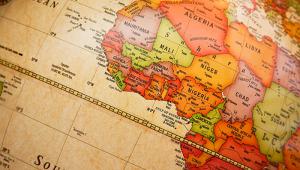The annual World Bank Country Policy and Institutional Assessment (CPIA) Africa analysis is the basis of ratings used to allocate zero-interest financing and grants for countries eligible for support from the International Development Association (IDA), its fund for the world’s poorest countries.
Countries are measured on 16 indicators and scored from one to six, of which the latter is for the best performers.
The average CPIA score for African countries was 3.2 in 2014. A series of policy reforms boosted Rwanda’s CPIA score to 4.0 moving it to the top of the list, just above Cabo Verde’s 3.9 and followed by Kenya, Senegal, and Tanzania all on 3.8.
Countries recovering from bouts of violence saw modest improvements, with Côte d’Ivoire’s score rising for the fourth consecutive year and reaching 3.3. The troubled Central African Republic though saw its rating drop.
Punam Chuhan-Pole, acting chief economist for the World Bank’s Africa region, said: “While there are several strong performers in Africa, the lagging CPIA scores for fragile countries in the region underscores that policy and institutional reforms are still very much needed in Africa.
“Efficient, transparent government operations with a focus on policies for poor families will go a long way towards improving the delivery of basic services, creating job opportunities and boosting the quality of life for millions of men and women in Africa.”
The bank classed 17 of the 34 sub-Saharan African countries as fragile, and they continue to lag behind the performance of fragile countries elsewhere.
Improved scores for governance policy reforms in 2014 were seen in nearly a quarter of countries, with the greatest progress coming in the quality of budgetary and financial management in Chad, Ethiopia, Lesotho, Malawi, Uganda and Zimbabwe.
Chuhan-Pole said: “The review notes that several countries are linking policy priorities to state budgets, one of several good governance measures that can be transformative for social and economic development.
“There has also been progress in civil society’s access to information on public policies and the budget. But reform of the legal and judicial system has lagged.”







